10 Trending Features For Successful Healthcare Apps in 2023
Contents
Mobile healthcare apps have been popular in recent years, making it easier for doctors & patients alike. Smart features allow users to record their health data and access medical treatment. Hence, in-person doctor visits are reduced.
Though features of a healthcare app are manifold, they have the same goal. They are designed to make life easier for patients and doctors and to aid in hospital management. In this article, you’ll find out 10 trending healthcare mobile app features, what to prepare before developing a healthcare app, and costs of app development.
Preparations Before Developing Healthcare Apps
Before getting to develop your healthcare app with excellent features, there are some points that you need to take into careful consideration.
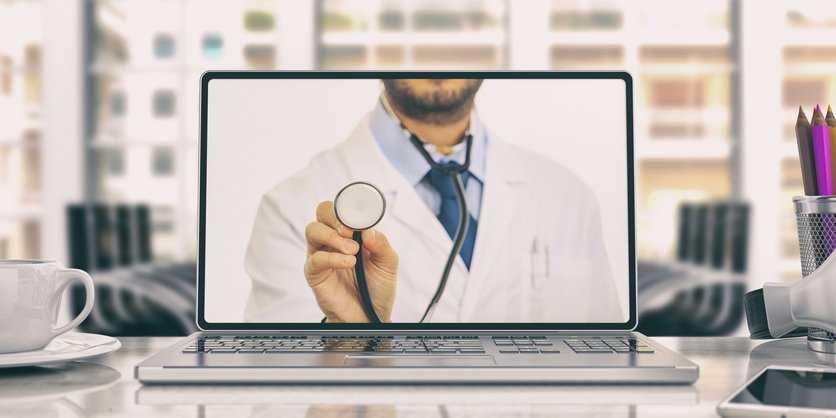
First, The Purpose of Your Healthcare App
Features of healthcare apps are varied, so to decide on which to opt for, you’ll need to understand your app’s purpose and choose them accordingly. For example, if your app is about fitness, the features are not similar to those of a disease management app. Similarly,an app for tracking medicine adherence and a diet app have different features.
Secondly, A Tech Stack for Your Healthcare Mobile App
Another important thing is to choose the right tech stack for your app to make sure you can implement the necessary features. The technology used to design healthcare apps are changing and evolving everyday. Last year’s trending features might not be popular in recent months.
Therefore, it is vital that you update your app regularly when it comes to a tech stack. You also need to catch up with the latest technologies and comprehend the newest features that allow you to keep enhancing the UX for users.
Thirdly, What Your Users Really Need
There are a lot of promising healthcare mobile app features out there, but try not to get lost among them. You need to focus on features that help meet your users’ demand, which can be known by collecting data and analyzing.
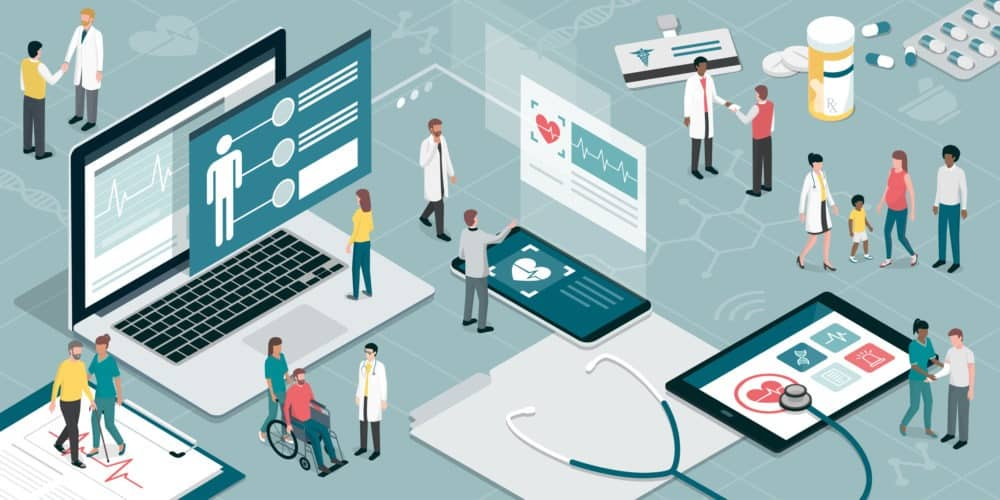
As a healthcare solution provider, it is likely that you have two main users: physicians and patients. If you’re creating an internal clinic app, you’ll only need to focus on doctors. What patients and doctors will be looking for in your app is another significant point that you should take into account. After that, you can start to develop your functions, make sure they are as straightforward and intuitive as possible.
You may interested in A Comprehensive Guide to Healthcare App Development
Cost of Healthcare App Development (1) (2)
On average, it costs around $300,000 to develop a healthcare app, not including post-launch maintenance and promotion. However, sophisticated apps cost more than this.
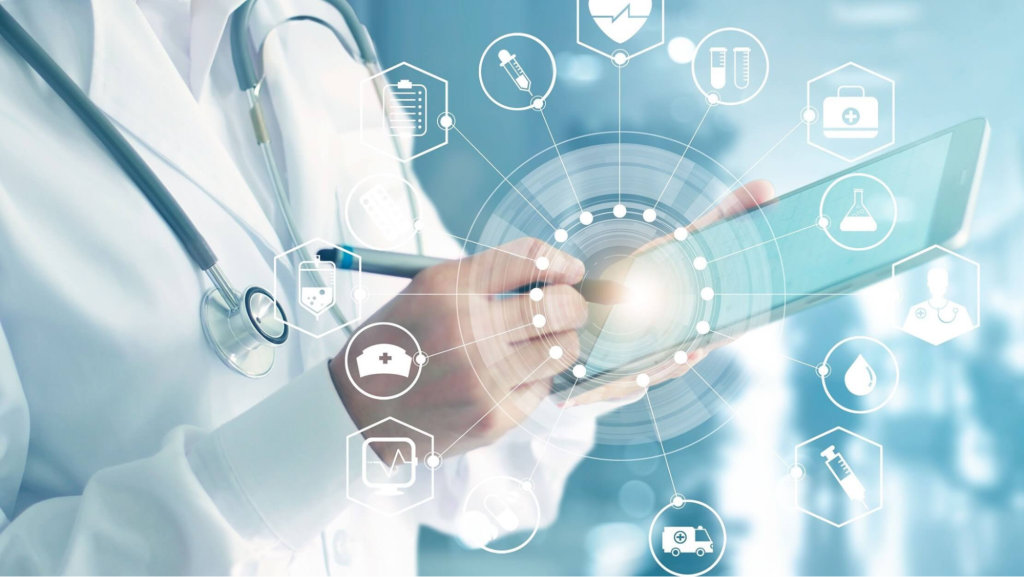
Generally, the cost of developing a healthcare app is decided by the device you choose to build your mobile app on (Android/iOS/Cross Web (Flutter)) and its mobile solution development provider. Besides, the pricing is also affected by factors such as:
- Healthcare mobile app design templates: Whether it’s a simple or sophisticated app, designing your app from wireframes to user interface requires more time and more high-expertise app designers.
- Healthcare mobile app features: The cost of developing a healthcare solution mainly depends on the features and functionalities you want the app to have. It means that an app with advanced functions is more costly than one with elementary features. Hence, before adding features, you need to make sure they are necessary for your app and your users can truly benefit from them.
- Developer expertise and team size: Leading and experienced mobile app development teams with adequate resources can launch your app smoothly and on time. Meanwhile, a mobile app solution provider with smaller teams might increase the estimated app development cost due to lack of human resources and probably expertise.
- Development platform: Which platform you want to develop your healthcare app on is also a factor that affects the price. Specifically, creating a healthcare app on an iOS operating system is not as expensive as on the Android platform. Because of the growing share of the Android market share, mobile app development on Android OS is costly but profitable.
- Compliance and regulations: As medicine and healthcare is a special industry, healthcare apps must be developed under the compliance of authorities in your country. Or else, legal penalties will be imposed on your app depending on your business size.
10 Trending Features For Healthcare Apps
From 2019 to the end of 2021, the world witnessed a rapid rise in the use of telemedicine. This is largely because of COVID-19. And now, people are so acquainted with telemedicine and healthcare technology that healthcare apps arepreferred worldwide.
This is why healthcare institutions and clinics are thinking of developing healthcare apps with the most efficient healthcare mobile app design templates. Generally, the best healthcare solutions include some essential features in common. Below, you’ll find 10 of the most trending healthcare app features that you should integrate into your mobile healthcare solution.
1. Engaging UX/UI Design Features
The UX/UI design of an app is the first thing that catches users’ eyes so it has to be pleasant-looking. When having the interface designed, make sure it presents adequate goals and offerings of your business. The theme should be relevant to your business and should not be too complex, given that many patients are elderly and they’re not familiar with striking colors or sophisticated scrolling effects. Plus, navigations on the app should be prominent enough for people of all tech levels.
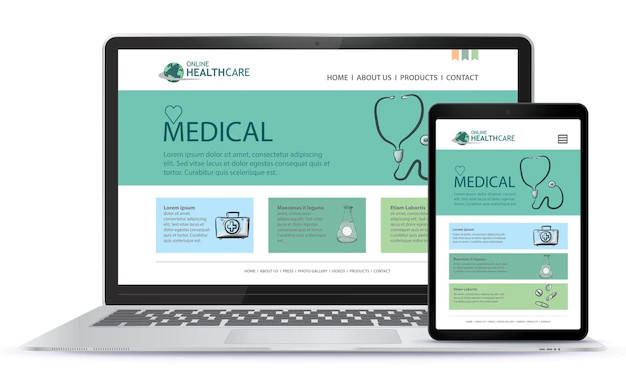
2. Health Activity Tracking
Adding this function to your healthcare app would help users (or patients) to monitor their health. Besides, you can also offer functionalities to help them develop a suitable and healthy lifestyle based on information they key in. For example, if users are tracking their blood pressure by entering the daily measurements, then the app can suggest to them the list of foods they should avoid to prevent blood pressure problems.
3. Symptoms Checking Feature
This is among the advanced healthcare app features that you should have in your app. This feature allows users to key in information about their condition, then it will show them the health problem they might be suffering from. Besides, you can add features that would tell users which physician or healthcare institutions they should visit for a further diagnosis of the problem.
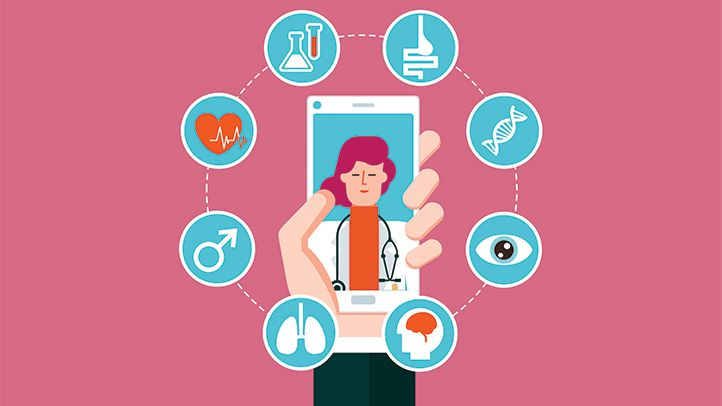
A symptoms checking feature should be developed using data from high-expertised physicians so that the diagnosis is as accurate as possible. This feature spares people the chore of searching their symptoms on the Internet, which usually results in inaccurate diagnosis.
4. Appointment Management
Many excellent mobile healthcare apps include a feature called appointment management. As the name refers, this feature makes it easy for booking doctor’s meetings or video consultations.
An effective appointment management feature should enable patients to see when they can meet their doctors. Doctors should be able to have their calendars, view their upcoming appointments to accept or decline, and manage their availability as necessary.
5. Video Conferencing
As other forms of online contact and working, video conferencing has emerged as a must-have feature for any healthcare app developed in 2021 and 2022.

The COVID-19 pandemic has had a huge impact on the healthcare administration all around the world. Hospitals and healthcare institutions have been overrun and are unable to arrange in-person doctor visits. Plus, social distancing in many countries prevents people from coming to clinics and hospitals, where the virus is strongly active.
As a result, video appointments have partly replaced face-to-face consultations. They have become an efficient alternative for both patients and physicians. Patients no longer spend hours commuting to and waiting in their doctor’s clinics or hospitals.
6. EHR
Appoint management and video conferencing features are used to make appointments, but how about after that? The doctor gives a diagnosis and updates the patient’s health record in the hospital’s internal system. That’s why your healthcare app should include an EHR feature.
EHR is not an uncommon phrase for people working in the medicine and pharmacy field. It stands for electronic health record.
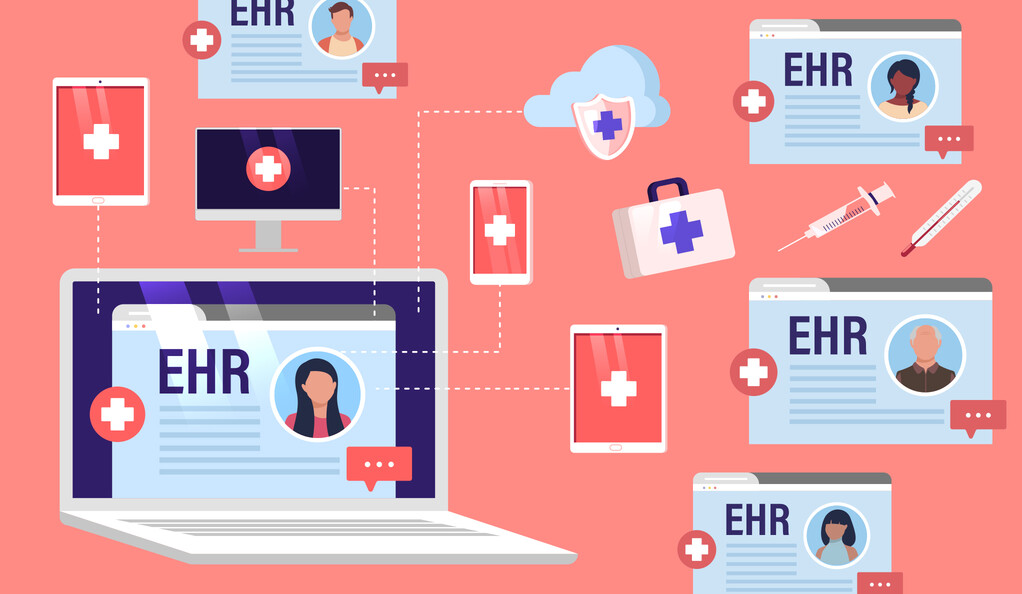
With this feature, doctors have a separate interface within the app to fill out the health form and merge the data to the internal system. The development of mobile health apps helps providers track their patients’ behavior between visits and adjust them based on demand.
7. Staff Management
Just as many other applications for organizations in other industry sectors, an healthcare app is also meant to aid in human resource management. Particularly when it is used in hospitals and healthcare institutions, besides between doctors and patients merely. Additional functionalities like employee schedules, reviews, and health records help improve work efficiency among staff.
8. Wearables Integration
In recent years, wearable devices have risen in popularity. From Apple smartwatches to Xiaomi ones, the devices are becoming a part of our daily lives. Wearables have various medical uses, including progressive ways such as wearable ECG monitors or diabetes monitoring devices. It is estimated that the healthcare wearables market will reach $60 billion by 2023.
The growing users of wearable technology offers a golden opportunity for healthcare solution providers to create apps that are integrated from other wearable devices. These devices then collect vital information such as heart rate, blood sugar level, blood pressure, and more, which helps doctors understand their patient’s overall health and provide better care.
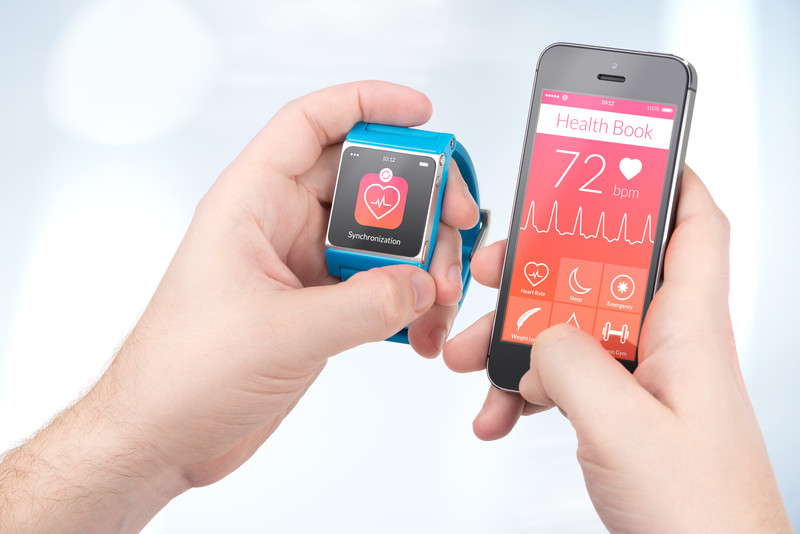
9. Payment Integration
Just like other modern mobile applications, a healthcare app should have payment integration. If you offer paid medical services such as paid consultation, you will want your users to have a simple and fast way to pay for their appointments.
You should consider integrating payment gateways such as Paypal, Adyen, Visa or Mastercard credit card payments into your app. This makes it easier for users to pay bills and for physicians to collect fees.
10. Multi-Language
An effective healthcare solution should include a multi-language feature. This is because people living in one country may speak different languages. For example, Spanish is the first language for 13% of the population in the US. So developing a multi-language functionality into your app will help it reach a larger demographic. Normally, sophisticated or technical medical terms may not be something a bi-lingual speaker can easily learn in their second language, so having the option to switch to their mother tongue is a plus as it provides a better user experience.
Rikkeisoft’s Solutions For Healthcare Industry
As for the longevity of Rikkeisoft’s solutions, we are looking forward to years of successful cooperation with our clients. We are an experienced team, capable of delivering high-quality products to our clients. In addition, we are always open to new challenges and are willing to take up jobs that others regard as too complex. Our company is a trustworthy outsourcing software solution provider for your healthcare business process management needs.
Final Thought
As the need for an intuitive and trustworthy mobile application for healthcare has been growing in the past few years, many providers are working on their projects of creating a competitive app. It is necessary to understand which features you should put on your app, and they should be based on your users’ needs.
Above are 10 latest healthcare app features that users nowadays expect from such an app. By integrating these features into your app, you can rest assured that it would be predominant on the Play Store and App Store.
More From Blog
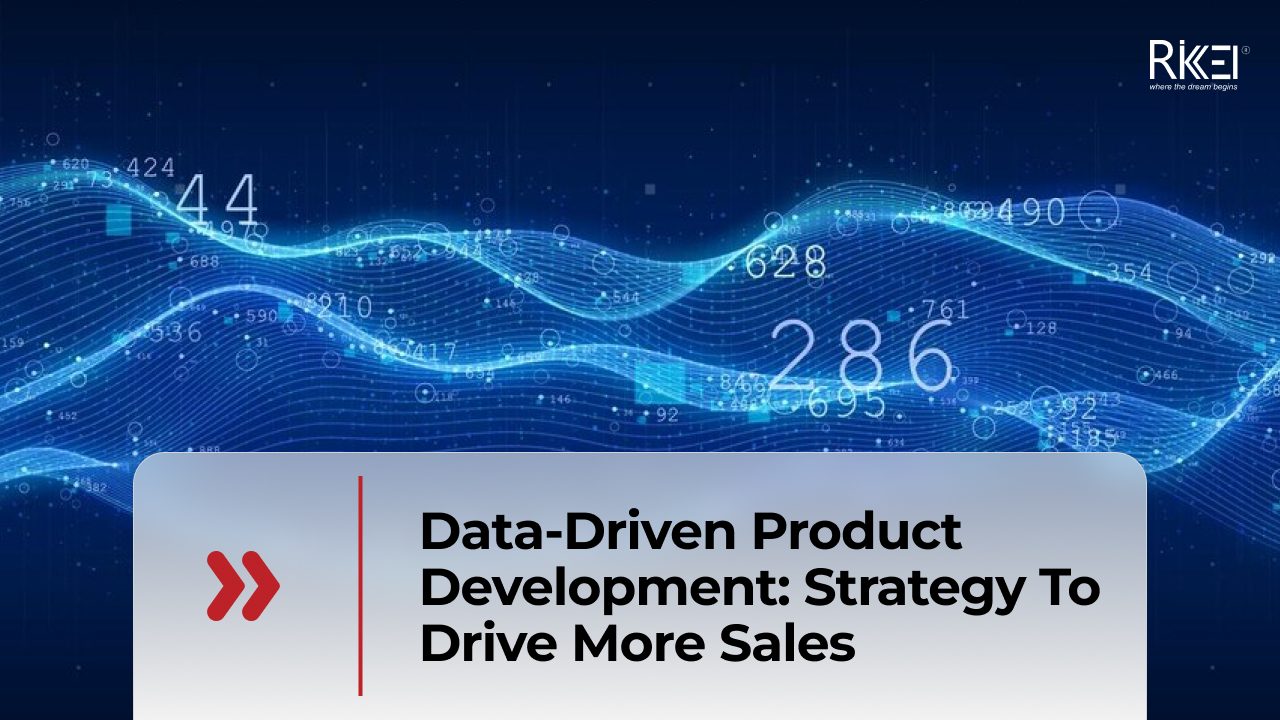
August 8, 2024
Data-Driven Product Development: Strategy To Drive More Sales
As a business owner, you want your products or services to be well-received upon launch. The most effective way to create a product that satisfies a broad range of customers is to gain insights into their needs and behaviors from the outset. The key lies in data-driven product development, a strategy that many companies have […]
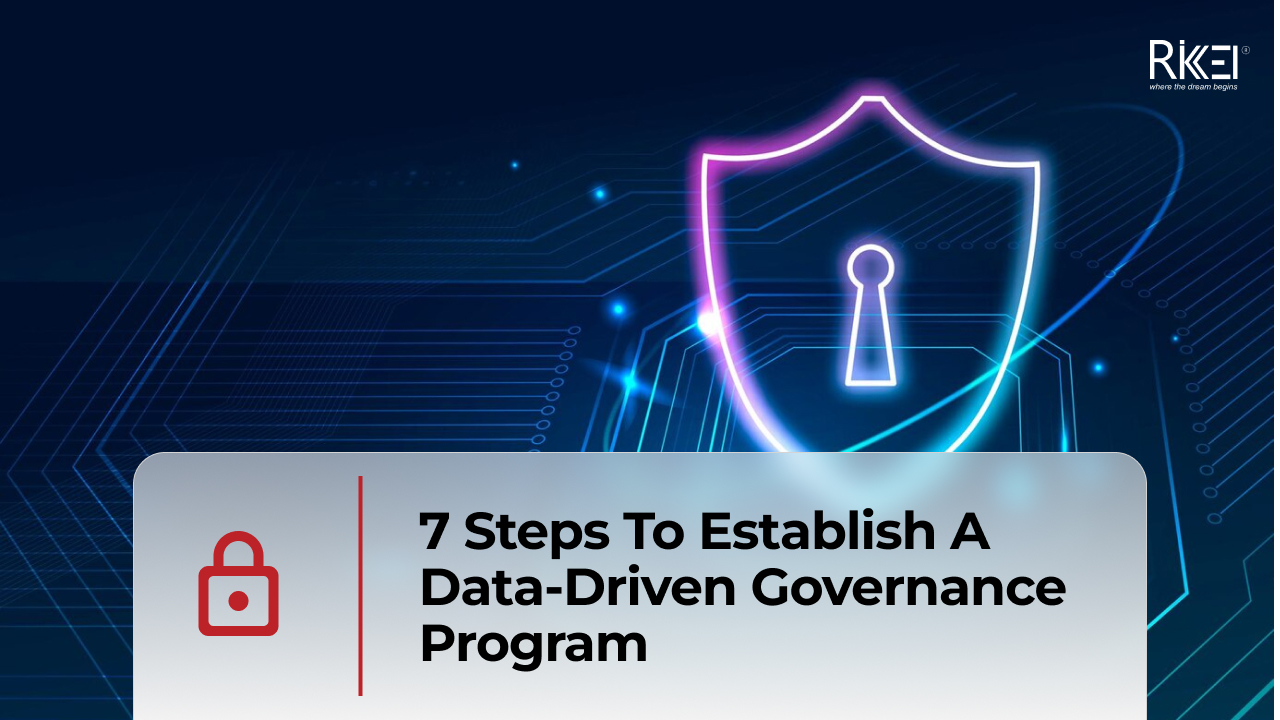
August 8, 2024
7 Steps To Establish A Data-Driven Governance Program
While data-driven approaches significantly benefit organizations in various ways, failure to govern the huge data sets will hurt your business even more. Effective data management also ensures data quality and security. That’s why there is an increasingly high demand for data-driven governance programs. Continue reading for a detailed guide! What Is Data-Driven Governance? Surprisingly, many […]

August 8, 2024
Data-Driven Business Transformation: 7 Steps To Follow
Data empowers businesses to make well-informed decisions in different departments, like marketing, human resources, finance, and more. As a business owner, you should also employ data-driven approaches to skyrocket productivity and efficiency. If you are still new to this concept, scroll down for an in-depth guide on data-driven business transformation. What Does A Data-Driven Business […]

August 8, 2024
Data-Driven Security: Transforming Protection Through Analytics
Cybersecurity was once an afterthought for most organizations. But in today’s digital landscape, it has become mission-critical. With this transformation has also come a shift in how security decisions are made. Rather than relying solely on intuition and tradition, leading organizations are embracing data-driven strategies. By using metrics and insights around threats, vulnerabilities, and more, […]
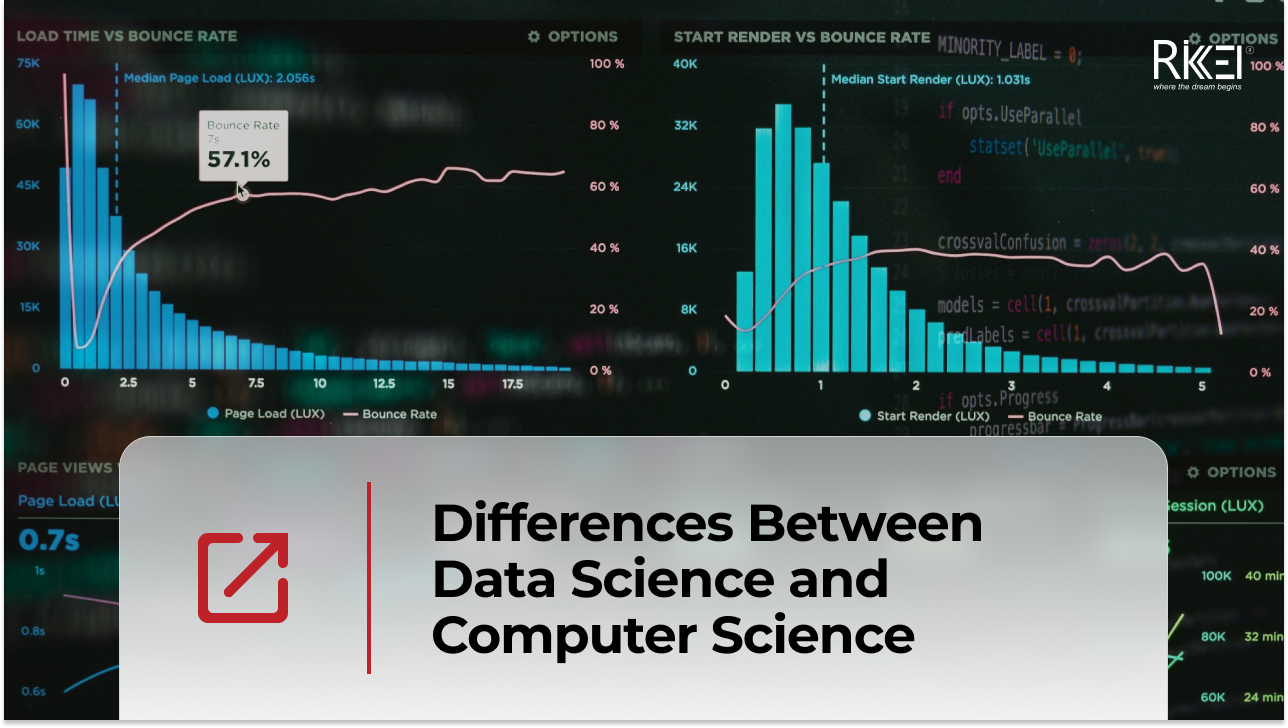
August 8, 2024
Differences Between Data Science and Computer Science
Data Science and Computer Science are distinct fields overlapping in certain areas but have different focuses and objectives. The article below will help you clearly understand the differences and the close connection between the two fields. What is Data Science? Data Science is an interdisciplinary field that combines scientific methods, processes, algorithms, and systems to […]

August 8, 2024
How Real-Time Data Analysis Empowers Your Business
In today’s fast-paced business landscape, the ability to quickly make data-driven decisions has become a key differentiator for success. Real-time data analysis, the process of analyzing data as soon as it’s generated, has emerged as a powerful tool to empower business across industries. By leveraging real-time data analysis, organizations can gain timely and actionable insights, […]

